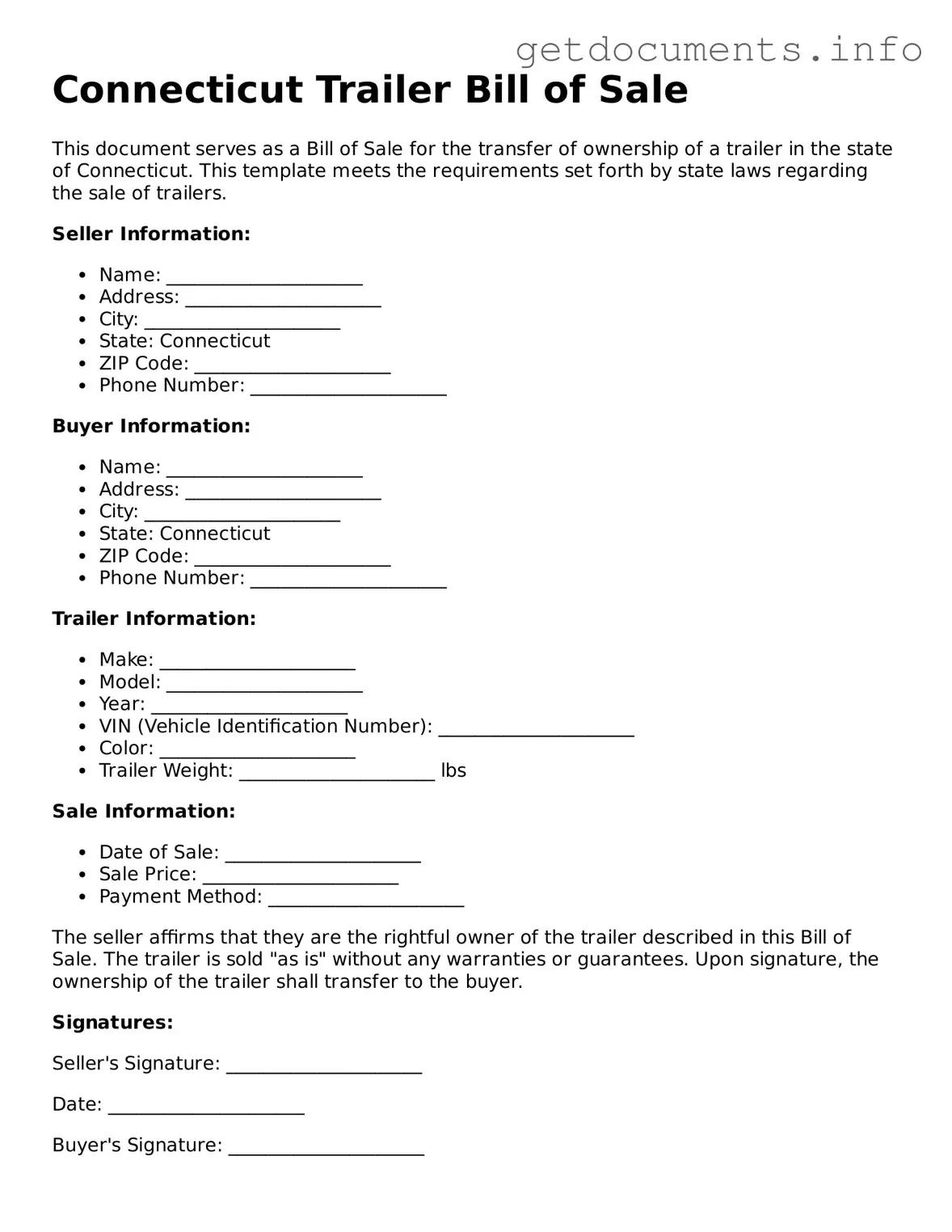Free Trailer Bill of Sale Template for Connecticut
The Connecticut Trailer Bill of Sale form is a legal document used to transfer ownership of a trailer from one party to another. This form serves as proof of the transaction and includes essential details such as the buyer's and seller's information, trailer specifications, and the sale price. Properly completing this form is crucial for ensuring a smooth transfer of ownership and for future registration purposes.
Ready to complete your Trailer Bill of Sale? Click the button below to get started.
Access Trailer Bill of Sale Editor

Free Trailer Bill of Sale Template for Connecticut
Access Trailer Bill of Sale Editor
Got places to be? Complete the form fast
Fill out Trailer Bill of Sale online and avoid printing or scanning.
Access Trailer Bill of Sale Editor
or
⇩ PDF File
